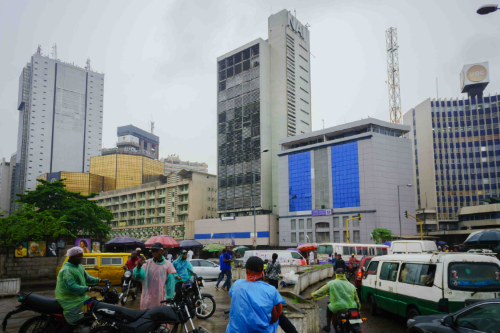Nigeria, Senegal Turn to GDP Rebasing to Ease Debt Ratios

TLDR
- Nigeria completed a rebasing of its gross domestic product (GDP) in July, while Senegal, Congo, and Gabon are currently updating their calculations
- They join a growing list of African economies using the statistical tool to reflect changing economic structures—and ease debt ratios
- GDP rebasing involves changing the base year for national accounts to include new or previously underestimated sectors
Nigeria completed a rebasing of its gross domestic product (GDP) in July, while Senegal, Congo, and Gabon are currently updating their calculations, joining a growing list of African economies using the statistical tool to reflect changing economic structures—and ease debt ratios.
GDP rebasing involves changing the base year for national accounts to include new or previously underestimated sectors, such as digital services or the informal economy. The update typically results in higher GDP, which lowers debt-to-GDP and deficit ratios.
Nigeria’s July exercise, which moved the base year to 2019, boosted GDP by 30% and lowered the debt ratio to 39% from 52%. President Bola Tinubu followed the adjustment with a $21 billion bond issue to finance infrastructure. Senegal, grappling with debt at 119% of GDP in 2024 after a hidden-debt scandal, hopes rebasing will bring the ratio below 100%.
The UN recommends rebasing every five years, with the new 2025 System of National Accounts (SNA) adding environmental goods and services. The African Development Bank is supporting Congo’s transition with a $602,000 grant.
Daba's newsletter is now on Substack. Sign up here to get the best of Africa's investment landscape
Key Takeaways
GDP rebasing improves macroeconomic ratios, but does not reduce debt stock or increase fiscal capacity. While it provides governments with cosmetic breathing space and signals compliance with global standards, it does not change their ability to raise revenues or service obligations. For countries under debt stress—such as Senegal—rebasing can improve optics, making indicators more palatable to investors and donors. But financiers caution that while indicators may look better, fundamentals remain unchanged. Unless accompanied by fiscal reforms and stronger growth, rebasing risks becoming a statistical fix rather than a solution. Still, in a region where economies are evolving rapidly, rebasing helps capture reality, from digital economies to the informal sector. For policymakers, the task is to ensure the exercise supports credibility rather than masks underlying vulnerabilities.

Next Frontier
Stay up to date on major news and events in African markets. Delivered weekly.
Pulse54
UDeep-dives into what’s old and new in Africa’s investment landscape. Delivered twice monthly.
Events
Sign up to stay informed about our regular webinars, product launches, and exhibitions.




